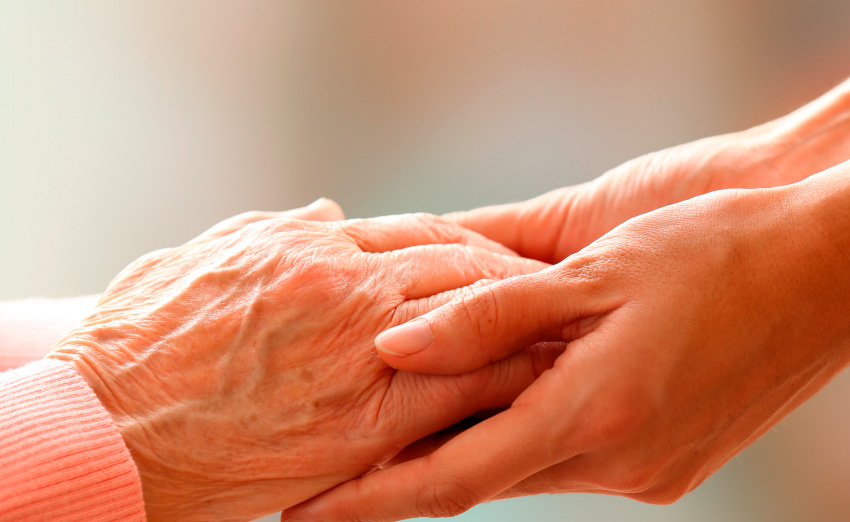Models
Titulo Modelos
Modelos
Contenido modelos cronicidad
.jpg)

Chronic Condition Care
The care of people with non-transmittable chronic illnesses is one of the biggest challenges healthcare systems have to face today. Managing the care and support of a person who suffers one or multiple chronic illnesses is a central element that determines the quality of life for the patients and their families. The trust established between people and our health organizations is essential to the achieving adherence to comprehensive care programs. This allows us to share responsibilities in the maintenance and restoration of health, boosting physical, cognitive and psychosocial capacities and supporting the patient and their family through the many years of evolution of the patient's health.
That is why Keralty has developed an integrated model that provides care with high levels of scientific quality and humanization. Our model manages the access to the required services in a timely and coordinated manner and adapts to the special living conditions and vulnerability of each patient.
With a particular focus on people who have developed multiple chronic conditions and that show higher level of fragility, the application of this model has allowed us to the increase the program's coverage to 85% of the diagnosed population. The program has reduced hospitalization rates 50% between 2012 and 2017, going from 21 admissions per 10,000 patients to 9 admissions for per 10,000 patients. The occurrence of cardiovascular events has also decreased by 21%, preventing around 600 patients over the last three years from evolving into a terminal chronic disease.
The model continues to evolve towards a more comprehensive focus, including social services and community participation in the patient's and family's environment. We also help the patient and their family through the direct involvement from the Keralty Foundation.
Contenido Modelos de salud para zonas aisladas y dispersas

Modelos de salud para zonas aisladas y dispersas
We believe that health is an essential element of the economic and social development of communities. Keralty is committed to equality and social justice, therefore, we design and implement comprehensive, integrated (insurance and care delivery) and innovative health models linking shared value and community development.
We focus on servicing the less favored communities, especially those isolated for different reasons (real limitations of access to health systems, geographical, catastrophes, conflicts, lack of structure, etc.).
It is in these areas that our care model that integrates social, health and community issues, becomes especially relevant for both the strengthening of primary care and community empowerment.
This is why our models of innovation towards wellbeing are truly focused on the person and are made possible by studying and adapting to the reality of each environment.
To that effect:
- We focus on the area and its population under a long-term strategic framework.
- We conduct an ad-hoc health risk analysis, managing according to specific outcomes with a portfolio of services focused on essential needs and demands of the community.
- We focus on primary care with medical center networks complemented with community health fairs through the Keralty Foundation and our University as needed.
- We also enable bi-directional referrals with non-primary care levels of care.
We typically establish public-private alliances with health institutions, local government and with other private organizations with a relevant presence in the communities we serve, with the goal of improving access to care and establishing healthcare networks and supporting infrastructure and services.
It's through these actions that our social commitment permeates in every part of the Keralty organization, as they act in a convergent way (companies within the Group, Sanitas University, Keralty Foundation), to make the principle of justice a reality, for the right of everybody to access health care.
Salutogénesis

Salutogénesis
Salutogenesis or "Health Genesis" is a term coined by sociologist Aaron Antonovsky during the late seventies, who by analyzing the consequences of the Nazi holocaust, proved that women who survived extermination had a better chance of overcoming the disease and achieve conditions of true well-being and health. These observations and evidence led Antonovsky to consider essential questions, which would spark off his salutogenesis theory: "Why did people stay healthy despite being exposed to so many harmful influences? How did they manage to recover from illness? What's different about people who don't fall ill in spite of the most extreme circumstances?"
Inspired by the "salutogenesis" theory as an invigorating axis and understanding health as not just as the absence of disease but as an individual's and community's capacity to keep their "sense of coherence", we encourage the harmonic adaptation opposite the illness' demands, focusing on strengthening the person's elements that are the source of their own health. Both in the absence of disease as well as in its presence, strengthening their capacity to adapt, advance their recovery and giving true importance to achieving well-being, health and quality of life.
Committed to this vision, Keralty works intensively and continuously with a multi-disciplinary team of professionals to re-think our care model and create new innovative strategies to redesign the model from inside of our company. We face the challenge of developing an integrated care model that combines the virtues of salutogenesis, identifies the health assets in each person, boosts community projects of the Keralty Foundation and inspires primary and specialty care teams to evolve disease management programs and respond to health system issues. This approach helps shift their essence and mission towards the well-being and quality of life of the patient, their family and the healthcare professionals themselves.

